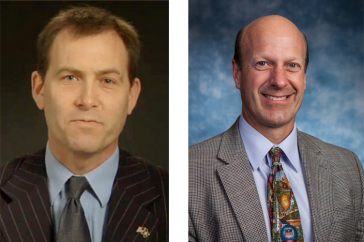
Immigration has been a hotly debated topic for both Republican and Democratic presidential hopefuls as they travel the campaign trail across New Hampshire. Once candidates move beyond the talking points, the subject reveals many complex policy questions, whether it’s how to enforce the country’s borders or the United States’ role in the Syrian refugee crisis.
Similar issues were also hotly debated in 1979, when University of New Hampshire at Manchester Adjunct Professor Judith Kumin began working in the Office of the United Nations High Commissioner for Refugees. They are also issues that will be covered in Kumin’s spring semester class in the Politics & Society Program, called Immigration and Refugee Policy (PS 512) in Global Perspective.
“One of the things I hope to do in my class is to make this international crisis a reality, to bring it closer to the students and familiarize them on how other countries look at these issues,” said Kumin.
Kumin said she took the position with the UNHCR because it was a unique combination of work in the humanitarian, global development and policy fields. The agency, created in 1950 by the UN General Assembly to help governments resolve refugee problems, has a 2015 budget of $7 billion, yet is entirely funded with voluntary contributions from governments and the private sector.
Her first assignment in 1979 was to assist in the resettlement of Vietnamese refugees, many of whom were fleeing by sea to countries in Southeast Asia. Similar to the refugee crisis today in the Mediterranean, many people were escaping in small boats, resulting in high casualties because of the extremely dangerous conditions on the sea. Kumin helped develop an agreement with the Vietnam government to establish a program for legal immigration to other countries, including the United States. The program, which was unique at the time, offered would-be refugees legal channels for emigration and helped dissuade them from taking the risk of fleeing by boat. Ultimately, 1 million people were able to find safe passage to another country. The program was also the first time the United States and Vietnam had worked together since the war and was key in helping reestablish diplomatic relations.
Kumin later moved on to a program to resettling refugees from across Southeast Asia to Australia, Europe and North America. She also headed the refugee operation in the former Yugoslavia in the 1990s, worked as a spokesperson for the High Commissioner, and was the UNHCR Director for Europe., Kumin left in 2012 when she reached the UN’s mandatory retirement age, but said she would have gladly stayed on to continue her work.
“Even though I worked for UNHCR for 32 years it never seemed like the same job,” said Kumin. With each new assignment, “it was like starting a new job,” she said.
Kumin has traveled the world in service of others, but also has close ties to New England. She grew up outside of Boston and was in the first class of Radcliffe College women to receive Harvard University degrees. After graduation, Kumin headed to Europe, where she took a job as an interpreter at the European Communities, which later developed into the European Union. After a few years living in Belgium, Kumin came back to the United States to attend the Fletcher School of Law and Diplomacy at Tufts University, where she received a Master of Arts in Law Diplomacy and later a PhD.
Kumin moved to New Hampshire in 2012 and although teaching was not her first thought when thinking about her next career move, she was invited to develop a class for the Politics & Society Program, then headed by a friend who had also once worked at the United Nations. Her first class was examining international human rights policy, but she will be teaching Immigration and Refugee Policy in Global Perspective this spring, in part because these issues are so timely.
“With the refugee and immigration issues being high on the national agenda, there is even more interest in the subject,” said Kumin. “My job is to put it in a global perspective.”
Kumin wants students to think about the wide range of issues countries must grapple with when developing immigration and refugee policies. What does it mean when we talk about managing immigration? How do states decide how many people to let in? How have other nations, like Canada, dealt with these issues? The class will also and how the movement of people affects not only countries of destination, but the home country as well. It’s an issue Kumin has literally written the book on, having authored the sixth edition of The State of the World’s Refugees, published by Oxford University Press in 2012.
“This course touches on every main area of focus students can select, including law, international studies and domestic policy,” said Melinda Negrόn-Gonzales, Assistant Professor and Coordinator of the Politics & Society program. “It’s appropriate for students who are studying many different areas of public policy.”
Negrόn-Gonzales also noted that students will want to take the class to glean the vast amount of knowledge Kumin offers, having worked on the ground and with top officials in the United Nations, as well as in national governments, in many humanitarian crises around the globe in recent history.
“We are so lucky to have her,” Negrόn-Gonzales said. “She brings such a wealth of knowledge over her three decades of experience working at the United Nations. She has seen many things in those 30 years.”
-
Written By:
Beth LaMontagne Hall | Freelancer



















































